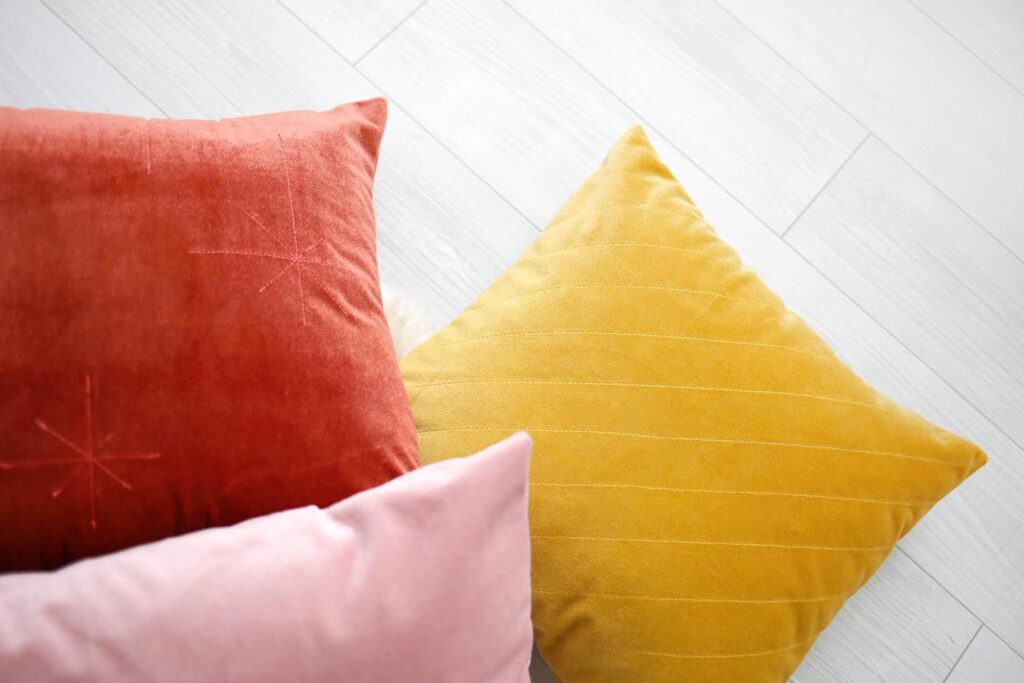
It’s that time of year when I want to up the cozy factor of my space. Whether it’s twinkle lights, a faux fur throw, or super soft velvet pillows—it all makes these longer evenings a bit more magical.
Plus, adding new envelope pillow cover to your space is one of the quickest ways to give your couch or bed a mini makeover. You can slip it on and off with the seasons— but you might never want to put this velvet pillow away!
If you’ve got access to a sewing machine and can stitch a straight-ish line, you can fill your couch with a lush, quilted velvet pillow for a little more hygge this winter. Warning: you’ll want to take more naps.
Adding simple stitch lines to the front piece of your pillow is an easy way to add a subtle pattern and add more interest to your pile.
I even added some mid-century looking star shapes to my brick red pillow to give it a subtle nod to the holidays. You can layer these up or mix and match with different woven cotton or knitted wool pillows for a visual feast at the end of your couch. 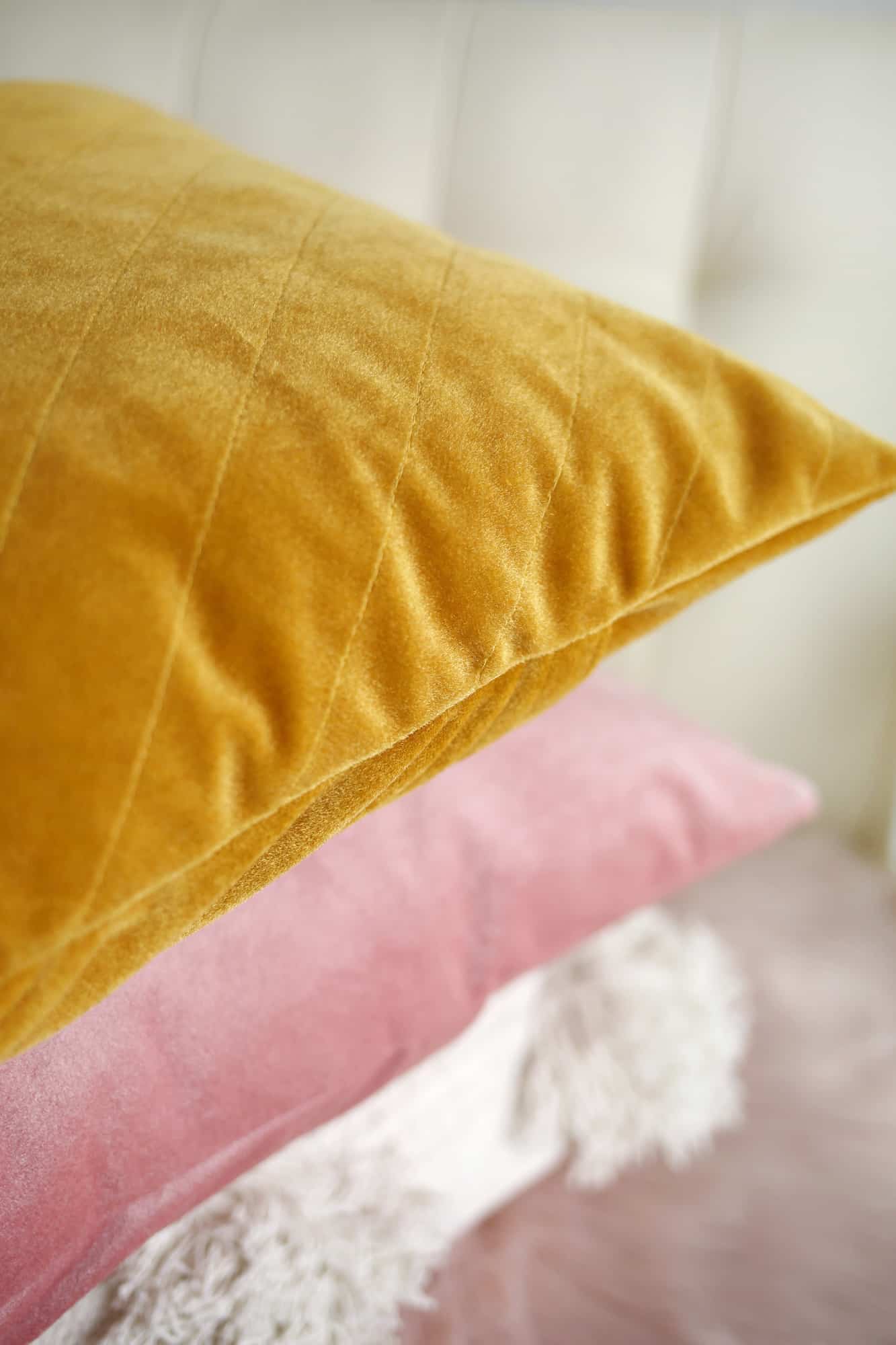
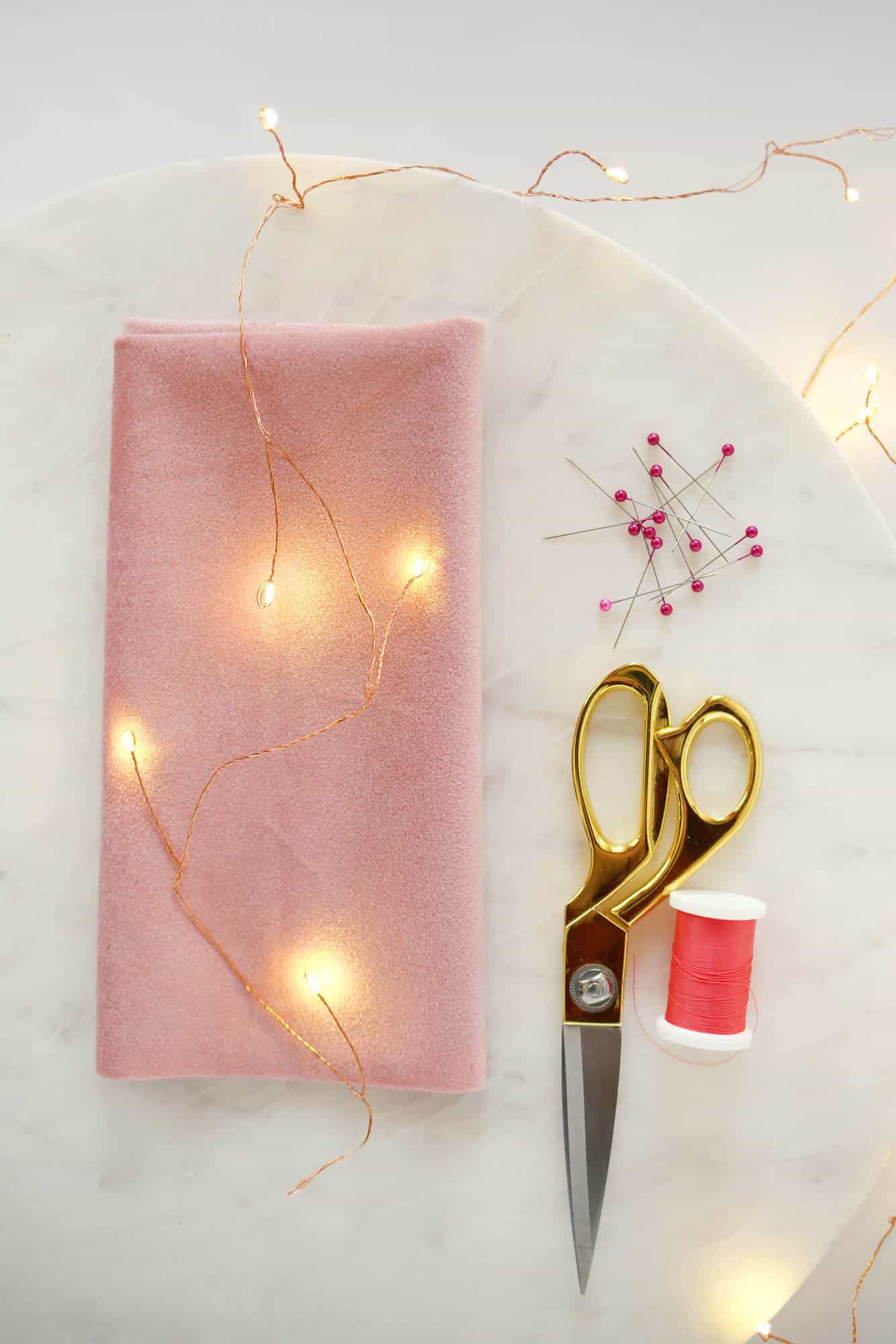 Supplies:
Supplies:
-2/3 yard of wide selvedge pink velvet fabric for 16″ pillows and 1/2 yard for 12″ pillows
–pillow insert of matching size (16″ pillow insert for 16″ pillow, etc.)
-sewing machine and coordinating thread
-fabric scissors
-straight pins
-chalk or marker
-acrylic ruler
–cutting mat (optional)
Since these are a bit larger, I’m going to share the process of making the gold version of the quilted lines pillow using a smaller sample. It’s a 6″ x 6″ size instead of 16″ x 16″.
No matter what size pillow you are wanting to create, cut the fabric to be the same size as the pillow insert. You don’t want to add an inch to make it fit or it will be loose and floppy. Ask me how I know this.
Step One: For a 16″ pillow, cut one piece of fabric that measures 16″ x 16″ for the front.
Then, cut another two pieces that measure 12″ x 16″ for the back pieces. You want your two back pieces to overlap by at least 5″. For diagonal stripes on your pillow, turn your 16″ square piece so that the velvet side is facing down.
Use your acrylic ruler and cutting mat to draw straight lines as far apart as you’d like them for your design. I suggest either 1/2″ or 1″ apart. Just keep it consistent and it’ll look great!
If you’d like a star design, use your acrylic ruler to draw a variety of star shapes on the back side. Just be sure you’re back stitching at the beginning and ending of a stitch line to keep your stitches from unraveling.
Step Two: Follow your stitch lines with your sewing machine and trim up your ends when you’re finished.
Step Three: For each of the two back sides, fold one of the long edges down once for a 1/2″ and then again 1/2″. Pin in place. Stitch along the folded edge. Make sure you’re folding onto the wrong side so that the right side of the fabric is showing after you’ve stitched together as shown.
Step Four: Place one of your back sides on top of the front piece so that the right sides are facing each other and three of the edges are lined up as shown. Pin in place along the three edges.
Step Five: Repeat with the second back side. Your hemmed edges should be overlapping a bit more than mine show in the example. Pin in place.
Stitch all the way around the perimeter of your pillow so that you’re stitching through both pieces as you go. Remove pins.
Step Six: Turn pillow right side out, poke out the corners, and insert your pillow form. Fluff and enjoy!

I love the way the light catches the velvet. It makes you want to grab a good book and cozy up for the evening!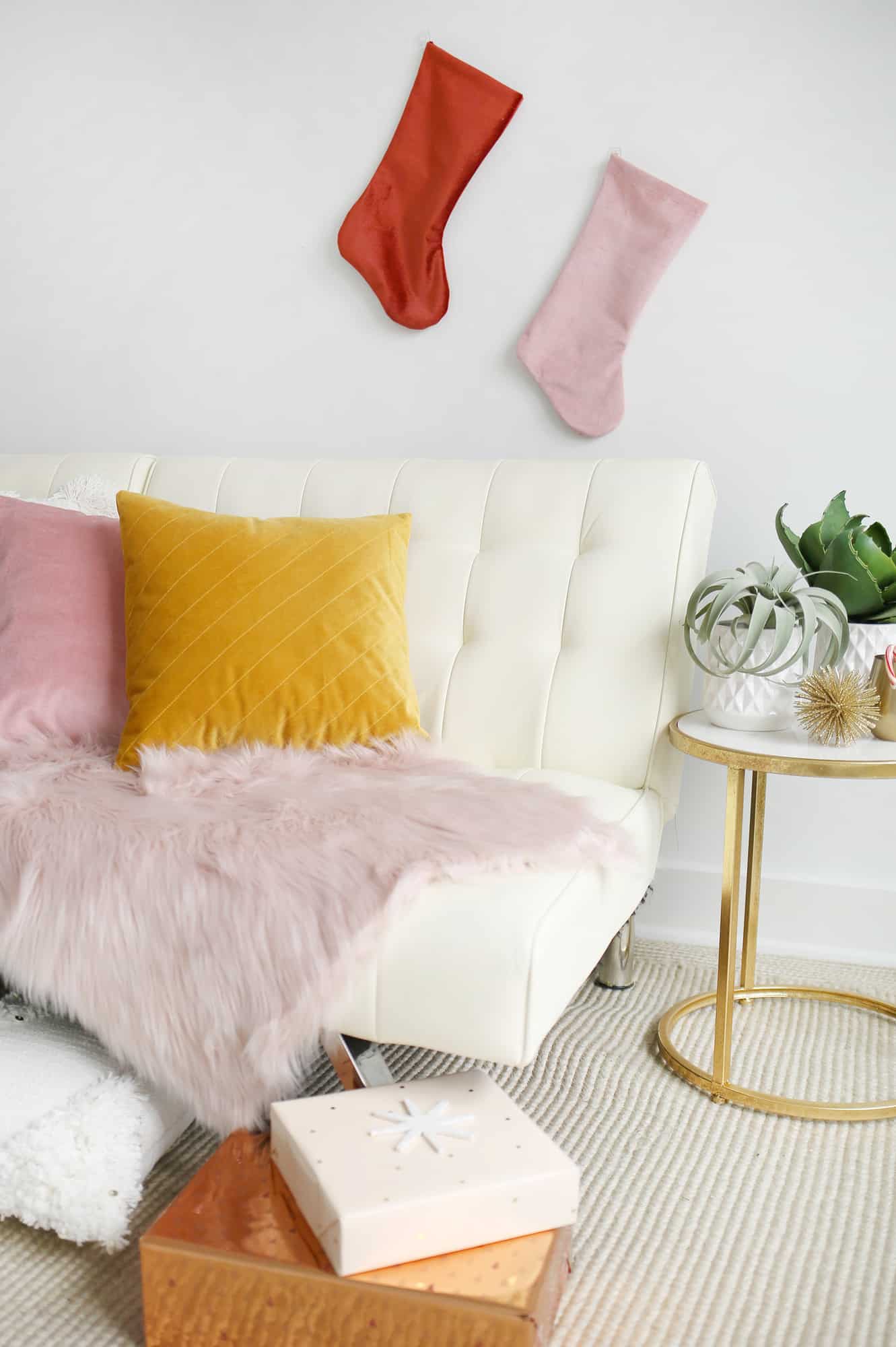
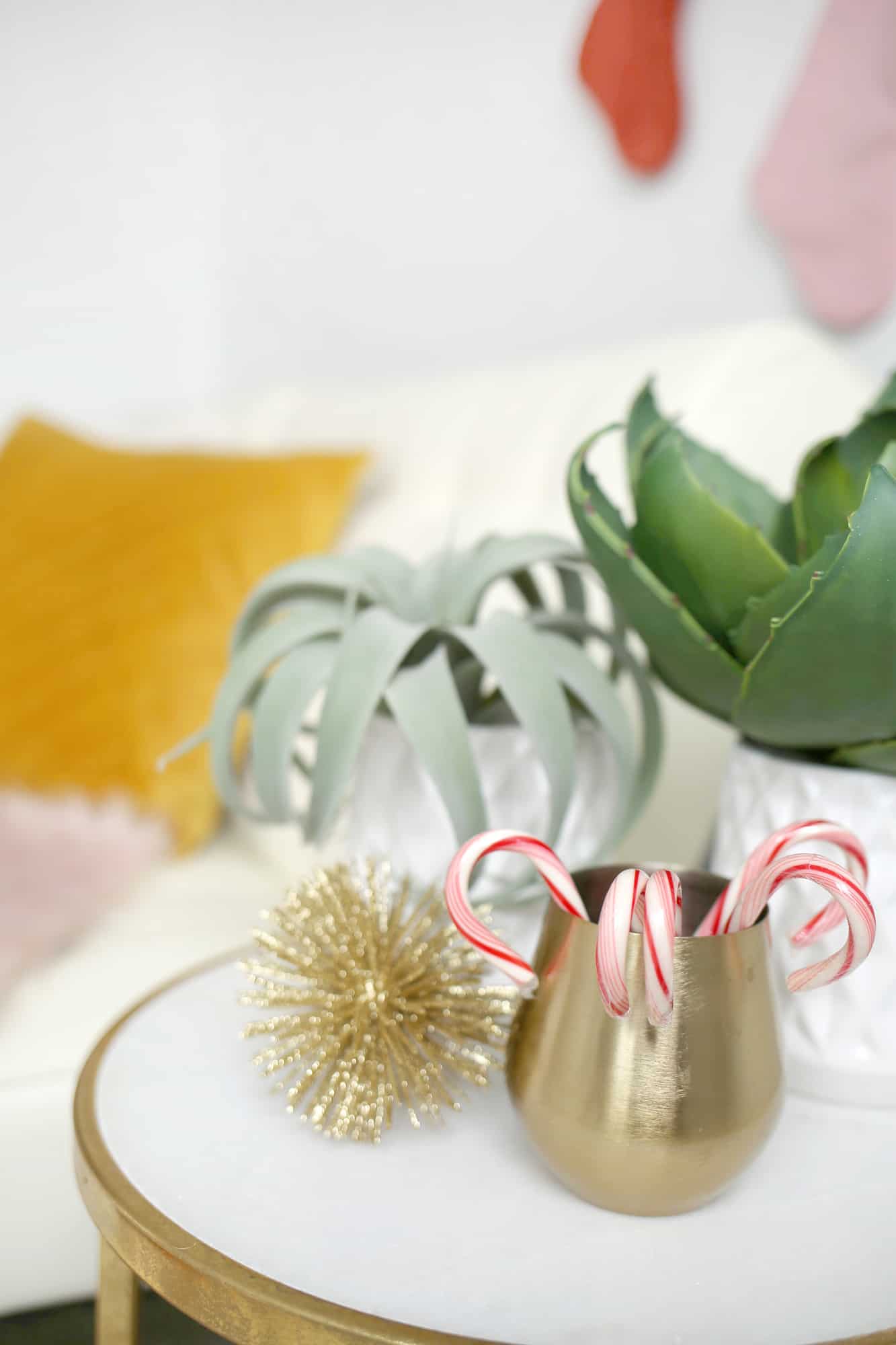 Are we still karate chopping our pillows? I think these didn’t have enough weight to them to stay chopped.
Are we still karate chopping our pillows? I think these didn’t have enough weight to them to stay chopped.
Find yourself a faux down insert for an even more high end effect and everyone will be asking where you bought your pillow! – Rachel
Looking for more cute pillow DIYS?

Quilted Velvet Pillow DIY
An easy pillow tutorial using velvet fabric
Ingredients
- 2/3 yard of wide selvedge pink velvet fabric for 16″ pillows and 1/2 yard for 12″ pillows
- pillow insert of matching size 16″ pillow insert for 16″ pillow, etc.
- sewing machine and coordinating thread
- fabric scissors
- straight pins
- chalk or marker
- acrylic ruler
- cutting mat optional
Instructions
-
For a 16″ pillow, cut one piece of fabric that measures 16″ x 16″ for the front.
Then, cut another two pieces that measure 12″ x 16″ for the back pieces. You want your two back pieces to overlap by at least 5″. For diagonal stripes on your pillow, turn your 16″ square piece so that the velvet side is facing down.
Use your acrylic ruler and cutting mat to draw straight lines as far apart as you’d like them for your design. I suggest either 1/2″ or 1″ apart. Just keep it consistent and it’ll look great!
If you’d like a star design, use your acrylic ruler to draw a variety of star shapes on the back side. Just be sure you’re back stitching at the beginning and ending of a stitch line to keep your stitches from unraveling.
-
Follow your stitch lines with your sewing machine and trim up your ends when you’re finished.
-
For each of the two back sides, fold one of the long edges down once for a 1/2″ and then again 1/2″. Pin in place. Stitch along the folded edge. Make sure you’re folding onto the wrong side so that the right side of the fabric is showing after you’ve stitched together as shown.
-
Place one of your back sides on top of the front piece so that the right sides are facing each other and three of the edges are lined up as shown. Pin in place along the three edges.
-
Repeat with the second back side. Your hemmed edges should be overlapping a bit more than mine show in the example. Pin in place.
Stitch all the way around the perimeter of your pillow so that you’re stitching through both pieces as you go. Remove pins.
-
Turn pillow right side out, poke out the corners, and insert your pillow form. Fluff and enjoy!
Recipe Notes
Since these are a bit larger, I’m going to share the process of making the gold version of the quilted lines pillow using a smaller sample. It’s a 6″ x 6″ size instead of 16″ x 16″. No matter what size pillow you are wanting to create, cut the fabric to be the same size as the pillow insert. You don’t want to add an inch to make it fit or it will be loose and floppy.
 The 15-Minute Movement Habit -Simple Desk Exercises for Working Bloggers
The 15-Minute Movement Habit -Simple Desk Exercises for Working Bloggers  How To Become A More Mindful Person
How To Become A More Mindful Person  How To Beat Loneliness In London
How To Beat Loneliness In London  Free green spaces to enjoy just outside of London
Free green spaces to enjoy just outside of London  How To Store Bicycles In Self Storage
How To Store Bicycles In Self Storage 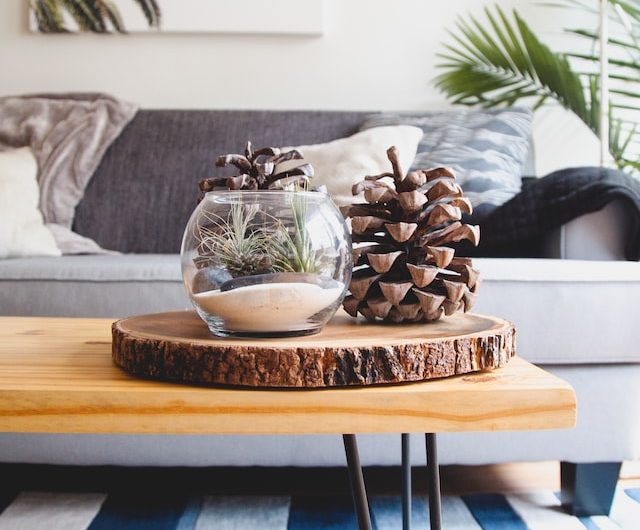 Why 2026’s top bloggers are going back to paper planners to spark creativity
Why 2026’s top bloggers are going back to paper planners to spark creativity 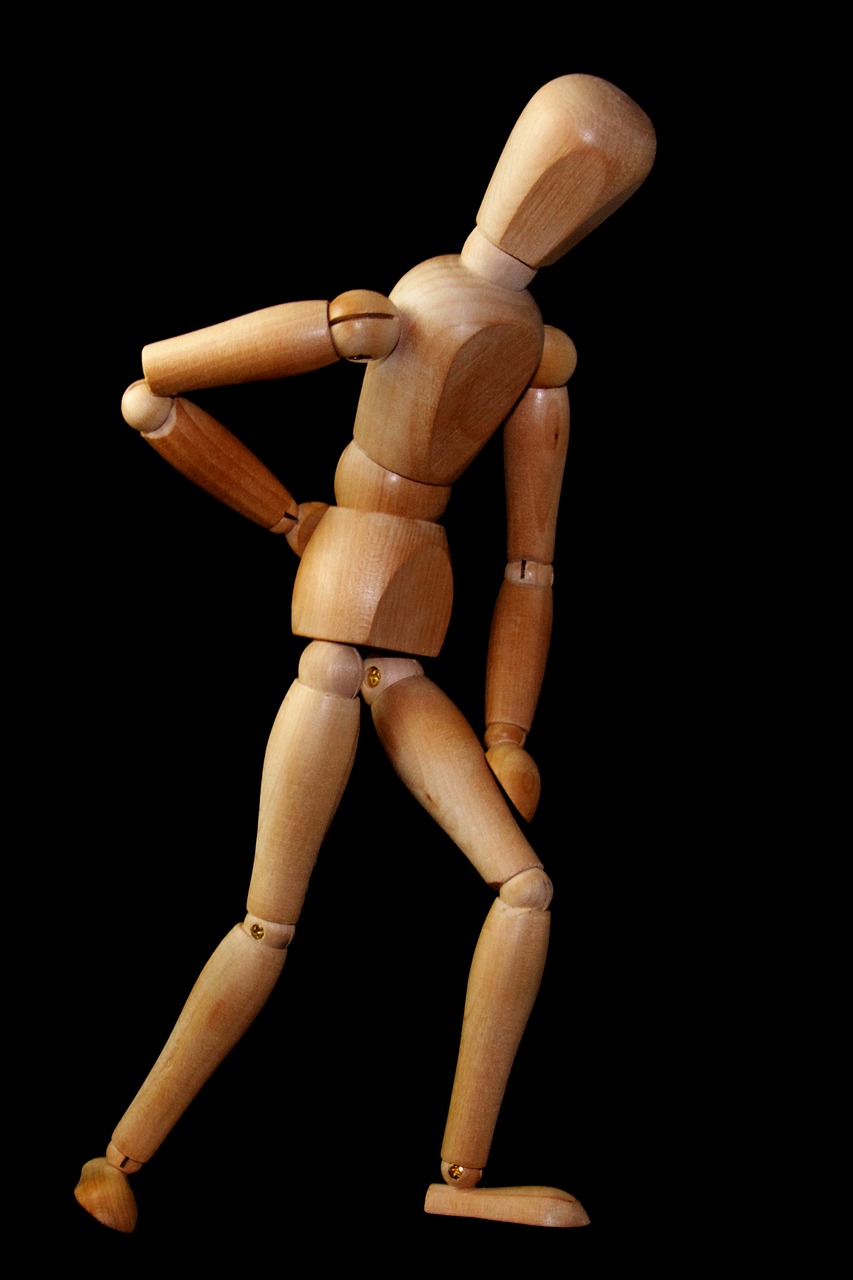 Why exercise doesn’t have to mean pain
Why exercise doesn’t have to mean pain  5 Tips on How to Train Your Brain
5 Tips on How to Train Your Brain